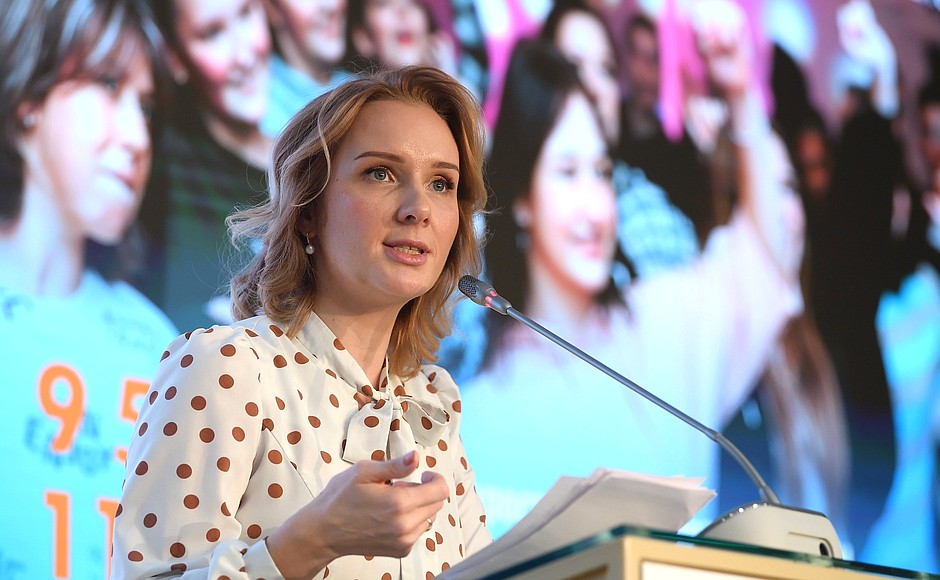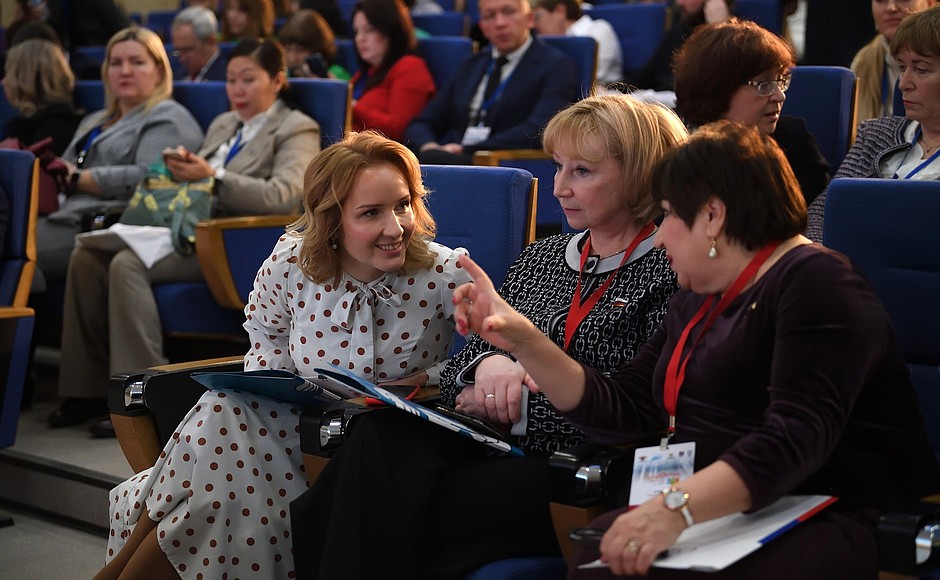Attending the forum were representatives of federal and regional agencies, socially oriented NGOs, practical specialists working with teenagers as well as members of the Federal Children’s Public Council under the Presidential Commissioner’ Office.
At the discussion venue Maria Lvova-Belova presented the results of Russia’s Teenagers programme launched nine months ago.
Thus, four centres were set up with the Commissioner’s assistance where teenagers can spend their free time and also get psychological counselling. Every region needs such centres; therefore, similar facilities will be set up across the country. Opening the centres in Mariupol, Donetsk and Lugansk is a matter of special consideration.
Positive engagement, including through work, is an effective method of thwarting teenagers’ destructive behaviours. The street social service, which is already operating in the Saratov Region and is being prepared for opening in the Belgorod, Novosibirsk and Penza regions, is working on this issue. In addition, the matter of establishing teenage employment centres is being considered: the regions are actively discussing the possibility of engaging companies and enterprises that are ready to hire minors with subsequent support tracking. Social theatres are becoming yet another effective format of working with teenagers.
Following a nationwide survey involving 300,000 respondents, the mot urgent teenage problems have been identified. These problems became the themes of on-site venues and roundtable discussions at the forum. In the respective capital city’s organisations discussion were held where experts reviewed legal subtleties and legislative initiatives which simplify hiring minors, various aspects of regulating this area, the involvement and interest of businesses, and the development of entrepreneurial engagement among teenagers.
Teenagers 360 regional forums were held earlier in St Petersburg, Vladivostok and Novosibirsk. Their major outcome was the establishment of expert communities on issues of importance to teenagers, as well as identifying and spreading leading methodologies of working with minors.


